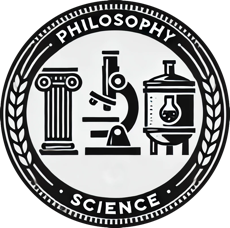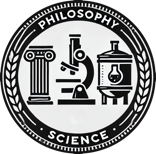
TM
Traditional Techniques
Modern Innovations
and Future Trends
Epilogue: The Brewing Odyssey
The journey of brewing weaves ancient wisdom with modern innovation, a testament to humanity's endless quest for creativity and connection, where every glass holds the past, the present, and the promise of the future.
Imagine standing in a bustling brewery, the warm, inviting aroma of malt and hops filling the air, as the soft hum of modern brewing equipment creates a symphony of progress and tradition. The journey through the art and science of brewing is a testament to humanity's enduring quest for excellence, creativity, and connection. As we conclude our exploration, it is fitting to reflect on the path we've traveled and envision the future that lies ahead.
The story of beer began thousands of years ago, in the fertile valleys of Mesopotamia and along the banks of the Nile, where the first brewers, guided by intuition and observation, transformed humble grains into a beverage that became central to their communities. These early pioneers laid the foundation for a craft that would evolve through the ages, driven by the principles of rationalism, empiricism, and the scientific method. Their rudimentary techniques and keen observations allowed them to harness the natural fermentation processes, turning basic ingredients into a source of nourishment and pleasure. These ancient brewers, without the benefit of modern science, relied on their senses and experiences, passing down their knowledge through generations.
As we moved through time, we witnessed the monks of medieval Europe, cloistered in their abbeys, perfecting their brewing techniques and elevating beer to new heights of quality and flavor. Their meticulous records and innovative methods, such as the Bavarian Purity Law of 1516, ensured that beer remained a symbol of purity and tradition. The monks' dedication to consistency and excellence laid the groundwork for modern brewing standards. They experimented with different grains, hops, and fermentation techniques, documenting their successes and failures with precision. This era marked a significant advancement in the brewing craft, with a focus on refining the process and ensuring the highest quality of beer.
The Industrial Revolution brought technological advancements that revolutionized the brewing industry, introducing refrigeration, pasteurization, and mechanization, which enabled brewers to produce beer on an unprecedented scale while maintaining high standards of quality. The advent of steam power and automated machinery transformed breweries into large-scale operations, capable of producing consistent and reliable products for a growing consumer base. These technological innovations not only increased production capacity but also improved the safety and stability of the beer. The ability to control fermentation temperatures and preserve beer for longer periods expanded the reach of breweries and made beer a staple beverage across the globe.
In the latter part of the 20th century, the craft beer movement emerged as a vibrant force, celebrating diversity, creativity, and the revival of traditional methods. Craft brewers, inspired by a desire to push the boundaries of flavor and innovation, embraced both ancient practices and cutting-edge technology. They experimented with new ingredients, techniques, and styles, creating a rich tapestry of beers that delighted the senses and expanded the possibilities of what beer could be. This era saw the resurgence of small, independent breweries, each with its unique approach to brewing. Craft brewers explored the vast array of flavors that different hops, malts, and yeasts could impart, leading to an explosion of new and exciting beer styles.
Throughout this journey, the principles of rationalism, empiricism, and the scientific method have been indispensable. Rationalism, with its emphasis on logical deduction and theoretical understanding, has guided brewers in developing new techniques and refining existing ones. Theoretical knowledge about yeast metabolism, fermentation kinetics, and the chemical interactions between ingredients has allowed brewers to predict outcomes and optimize their processes. Empiricism, grounded in observation and experimentation, has allowed brewers to test their ideas and learn from their experiences. By conducting controlled experiments and analyzing the results, brewers have been able to refine their methods and achieve consistent quality. The scientific method, a structured approach to inquiry, has provided a framework for systematic improvement and innovation. By observing phenomena, forming hypotheses, conducting experiments, analyzing data, replication, and peer review, brewers have continuously advanced their craft.
As we look to the future, the brewing industry continues to evolve. Technological advancements such as automation and data analytics are enhancing efficiency and product quality, while emerging beer styles and consumer preferences drive innovation. Automated brewing systems allow for precise control over every aspect of the brewing process, from ingredient measurements to fermentation conditions. Data analytics provide insights into production trends and consumer preferences, enabling brewers to fine-tune their recipes and optimize their operations. Sustainability has become a central concern, with brewers seeking to reduce their environmental footprint through efficient water management, renewable energy sources, and sustainable ingredients. Initiatives such as water recycling, solar power, and the use of locally sourced, organic ingredients are becoming standard practices in many breweries. The demand for non-alcoholic and low-alcohol beers is rising, prompting brewers to develop new techniques that preserve the full flavor of traditional brews while catering to health-conscious consumers. Advanced methods such as vacuum distillation and reverse osmosis allow brewers to create flavorful, low-alcohol options without compromising on taste.
Yet, amidst all this progress, the essence of brewing remains unchanged. It is a craft that combines art and science, tradition and innovation, and individual creativity with communal celebration. It is a craft that brings people together, creating connections and fostering a sense of community. Brewing has always been about more than just the beer itself; it is about the people who make it, the places it is made, and the moments it enhances. Whether it is a small gathering of friends or a large community festival, beer has the power to bring people together and create lasting memories. It is a craft that reflects the rich history of human ingenuity and the endless possibilities of the future. Each brewer, with their unique approach and perspective, contributes to the ongoing story of beer, adding their chapter to a narrative that spans millennia.
Imagine, once again, the bustling brewery. The brewer stands at the helm, blending ancient wisdom with modern technology, guided by the principles that have shaped the craft for millennia. The brew kettle hums, the fermenters bubble, and the aroma of hops fills the air. Each batch of beer is a testament to the brewer's skill, creativity, and dedication, a reflection of the journey that began thousands of years ago and continues to evolve. The brewer carefully monitors the process, making adjustments as needed, always striving for perfection. They draw on their knowledge of chemistry and microbiology, but also rely on their senses and intuition. The art of brewing is in the balance between precision and creativity, between science and tradition.
As we conclude this exploration of the art and science of brewing, we celebrate the rich tapestry of history, the vibrant creativity of the present, and the boundless potential of the future. Whether you are a novice homebrewer, a seasoned professional, or simply a lover of beer, may this book inspire you to embrace the journey, to explore the craft with curiosity and passion, and to raise a glass to the timeless tradition and endless innovation that define the world of brewing. The story of beer is far from over. It is a living, breathing narrative, shaped by each brewer's hands, informed by each sip's taste, and enriched by each shared moment over a pint. The art and science of brewing continue to evolve, driven by the same principles that guided our ancestors and will inspire future generations. As we look ahead, we are reminded that the journey is as important as the destination, and the best is yet to come.
In this vision of the future, the brewing industry will continue to embrace new technologies and techniques, always with an eye toward sustainability and quality. Brewers will push the boundaries of flavor, experimenting with new ingredients and methods, while staying true to the principles that have guided the craft for centuries. They will continue to build communities, bringing people together to share in the joy of beer. The future of brewing is bright, filled with endless possibilities and the promise of continued innovation and excellence.
So, as you stand in that bustling brewery, take a moment to appreciate the journey. From the ancient brewers of Mesopotamia to the monks of medieval Europe, from the industrial pioneers to the craft beer revolutionaries, each has contributed to the rich tapestry of brewing. And now, it is your turn to be a part of this story, to explore, to innovate, and to share your passion with the world. Raise your glass to the past, present, and future of brewing, and to the endless possibilities that lie ahead.
Cheers!
***
Wrong 😕
Lorem ipsum dolor sit amet, consectetur adipiscing elit. Aliquam tincidunt lorem enim, eget fringilla turpis congue vitae. Phasellus aliquam nisi ut lorem vestibulum eleifend. Nulla ut arcu non nisi congue venenatis vitae ut ante. Nam iaculis sem nec ultrices dapibus. Phasellus eu ultrices turpis. Vivamus non mollis lacus, non ullamcorper nisl. Pellentesque habitant morbi tristique senectus et netus et malesuada fames ac turpis egestas. Phasellus sit amet scelerisque ipsum. Morbi nulla dolor, adipiscing non convallis rhoncus, ornare sed risus.
Sed adipiscing eget nibh at convallis. Curabitur eu gravida mauris, sit amet dictum metus. Sed a elementum arcu. Proin consectetur eros vitae
CORRECT! 🙂
Lorem ipsum dolor sit amet, consectetur adipiscing elit. Aliquam tincidunt lorem enim, eget fringilla turpis congue vitae. Phasellus aliquam nisi ut lorem vestibulum eleifend. Nulla ut arcu non nisi congue venenatis vitae ut ante. Nam iaculis sem nec ultrices dapibus. Phasellus eu ultrices turpis. Vivamus non mollis lacus, non ullamcorper nisl. Pellentesque habitant morbi tristique senectus et netus et malesuada fames ac turpis egestas. Phasellus sit amet scelerisque ipsum. Morbi nulla dolor, adipiscing non convallis rhoncus, ornare sed risus.
Sed adipiscing eget nibh at convallis. Curabitur eu gravida mauris, sit amet dictum metus. Sed a elementum arcu. Proin consectetur eros vitae odio sagittis, vitae dignissim justo sollicitudin. Phasellus non varius lacus, aliquet feugiat mauris. Phasellus fringilla commodo sem vel pellentesque. Ut porttitor tincidunt risus a pharetra. Cras nec vestibulum massa. Mauris sagittis leo a libero convallis accumsan. Aenean ut mollis ipsum. Donec aliquam egestas convallis. Fusce dapibus, neque sed
TM
BREWING
Traditional Techniques
Modern Innovations
and Future Trends
